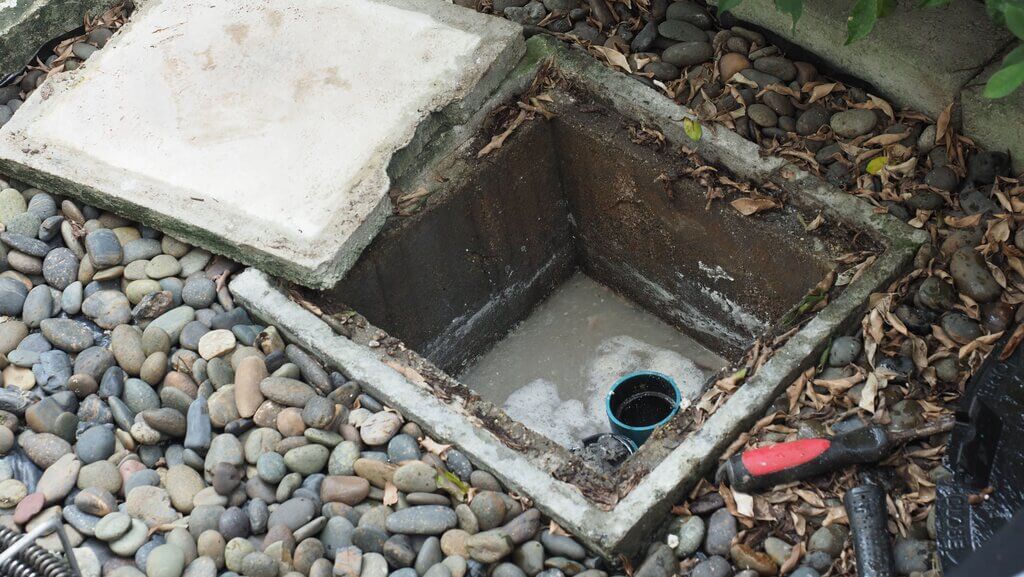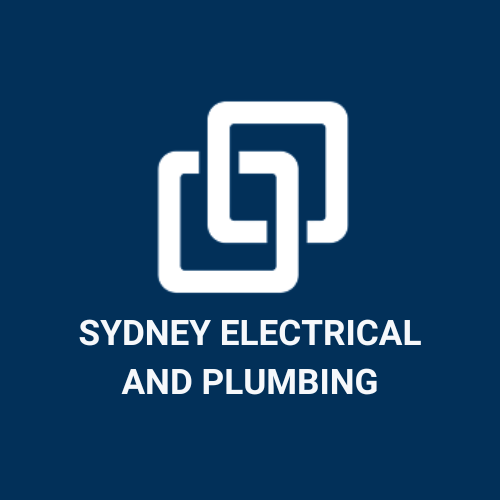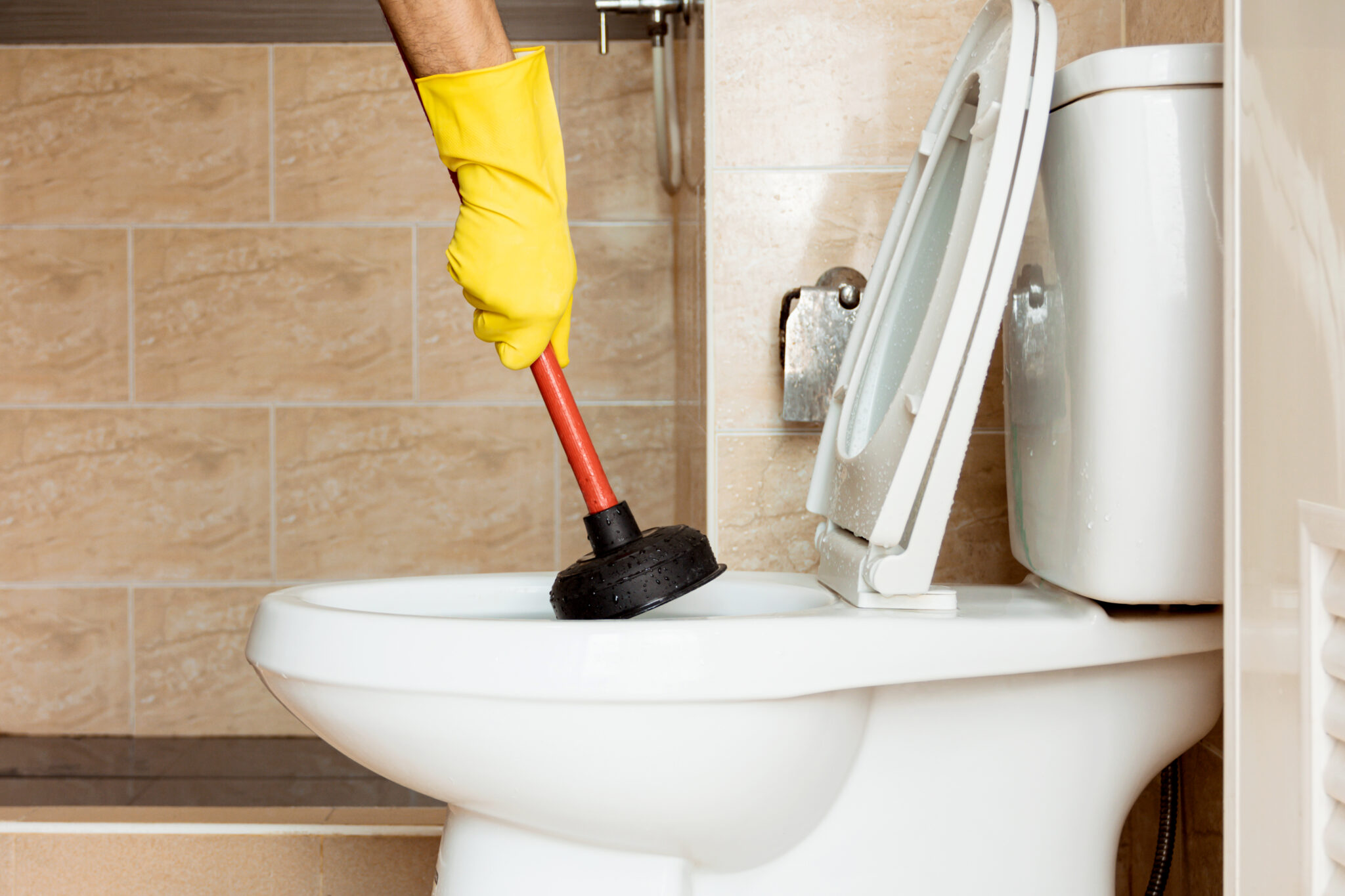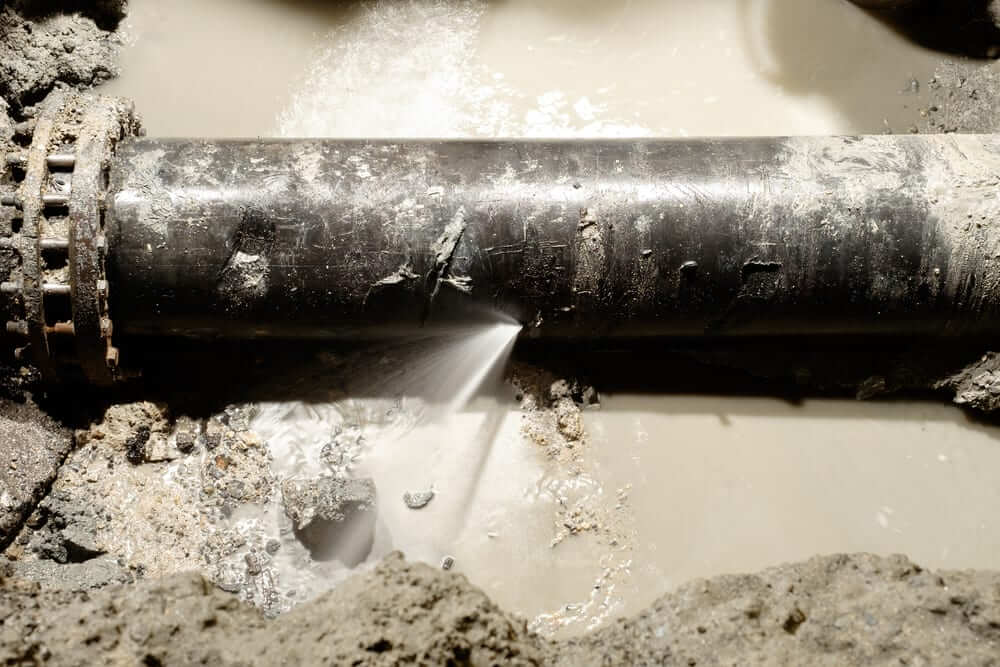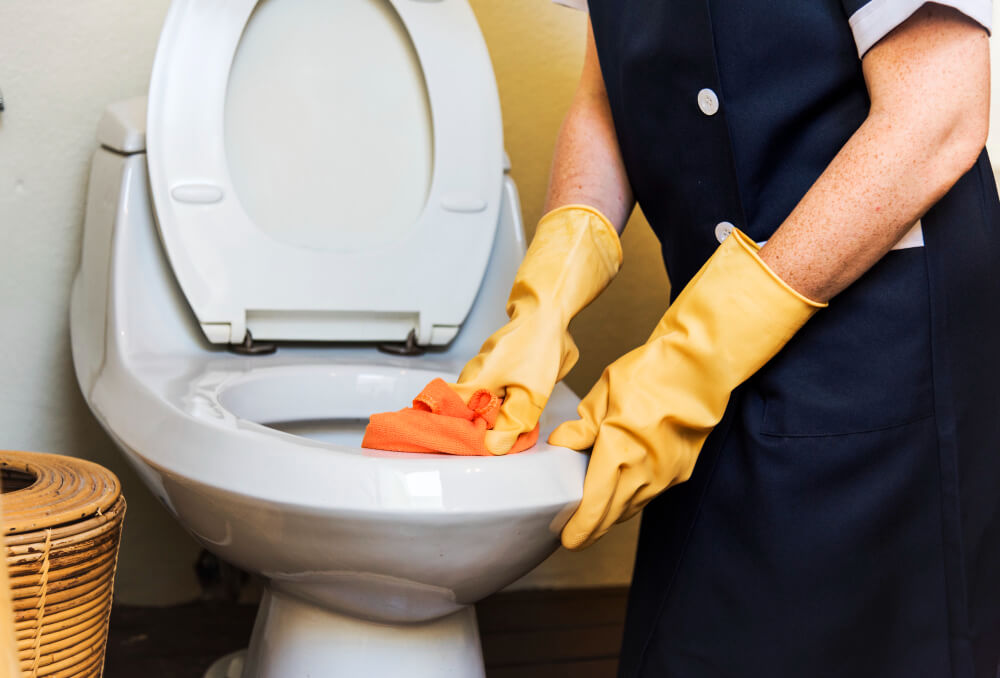Sewage drains can be cleared using various methods like boiling water, baking soda and vinegar mixture, plunger techniques, and advanced techniques like plumbing snakes or augers. Boiling water is easy for small obstructions, while baking soda and vinegar mixtures are for mild ones. Proper plunger techniques and hydro jetting are effective for difficult obstructions. Regular maintenance and waste disposal practices can extend the system’s lifespan and prevent future obstructions. When faced with a more challenging blockage, understanding how to unblock a sewage drain using advanced techniques becomes crucial. By incorporating these methods into your plumbing maintenance routine, you can ensure a free-flowing sewage system and avoid potential disruptions in the future.
Table of Contents
Here is the step by step process how to unblock a sewage drain:
A blocked sewage drain can cause significant disruptions, health risks, and plumbing issues. It’s crucial to address this issue promptly to prevent delayed drainage, offensive smells, and structural damage. Immediate action is essential to prevent further issues and restore water supply. This article provides practical solutions to unblock a sewage drain, ensuring a clear drainage system and a comfortable living environment.
Signs of a Blocked Sewage Drain
Slow Drainage
One of the first obvious signs of a blocked sewage drain is usually slow water flow down your drains. This annoyance can appear in toilets, sinks, or showers and prevent water from draining quickly. Early detection and intervention are made possible by keeping an eye on the drainage rate.
Gurgling Sounds
Unusual sounds coming from your drains, such as gurgling or bubbling, are indicative of trapped air, which is a common problem with clogged sewer systems. These audible clues indicate that something is preventing wastewater from flowing normally, which calls for a more thorough examination of your plumbing.
Unpleasant smells
Not only are foul smells coming from drains unpleasant, but they may also indicate a possible sewage clog. Decomposing materials caused by debris buildup in the pipes releases foul smells. It is essential to take quick action to resolve this problem if you want to keep your living space odor-free and healthy.
Early detection of these warning indicators will allow you to take proactive steps to clear a clogged sewage drain, averting more issues and guaranteeing the seamless operation of your plumbing system.
Understanding the Causes
Types of Blockages
It’s critical to comprehend the underlying reasons for clogged sewer drains. Wastewater flow can be impeded by a number of different reasons.
Grease accumulation: Grease accumulation is one frequent culprit. Cooking oils and fats have the tendency to harden in pipes over time, forming a sticky barrier that collects other debris and causes clogs.
Foreign Objects: Things that shouldn’t be in the sewer system, including too much toilet paper or sanitary goods, frequently do. Preventing recurring blockages requires locating and eliminating these impediments.
Tree Roots: Invading tree roots that are looking for moisture have the potential to enter pipes and cause serious damage and obstructions. For long-term solutions to be effective, it is imperative to recognize this natural encroachment.
The Significance of Determining the Particular Cause
One cannot stress the significance of determining the precise reason behind a clogged sewer drain. For each kind of obstruction to be effectively resolved, a different strategy is needed. Finding the source of the problem guarantees that the solution you select takes care of the underlying problem, averting more problems and preserving the free-flowing plumbing system.
DIY Solutions
Boiling Water Technique
Boiling water is a very easy and efficient do-it-yourself approach for clearing a sewage drain. Pouring boiling water down the drain helps loosen small obstructions and dissolve grease, allowing the water to flow freely again. This simple method is an easy way to address drainage problems in their early stages.
Baking Soda and Vinegar Mixture
The traditional blend of vinegar and baking soda is a natural and bubbly cure. Together, these two energetic individuals produce a chemical reaction that can dissolve dirt and unclog pipes. It’s an environmentally friendly substitute that frequently works well for mild obstructions, rejuvenating your plumbing system.
Proper Plunging Techniques
Any homeowner can benefit from investing in a high-quality plunger and learning effective plunger methods. A plunger may remove obstructions that are closer to the surface when used properly, providing a practical and quick fix for typical drainage problems.
Advanced Techniques
Introduction to a Plumbing Snake or Auger
Advanced strategies become important when do-it-yourself procedures prove inadequate. A plumbing snake, sometimes referred to as an auger, is a multipurpose instrument made to delve deeply into pipelines in order to loosen and remove obstinate obstructions. When it comes to solving more complicated sewage drain problems that are beyond the scope of conventional solutions, this mechanical marvel is invaluable.
How a Plumbing Snake Operates: A plumbing snake is made of coiled wire that turns and threads its way through the pipes when it is placed into a drain. By doing this, impediments are successfully broken down and the water can flow freely once more.
Overview of Hydro Jetting
Hydro jetting shows up as a potent remedy for the most difficult obstructions. With this technique, accumulated debris, grease, and roots are blasted away with a high-pressure water jet. Hydro jetting reduces the possibility of future problems by cleaning the entire pipe in addition to removing the current obstruction.
The Hydro Jetting Process: Pressurised water is shot into the pipes during hydro jetting, which successfully cleans out tough clogs. The water’s force guarantees a complete cleaning, making it a complete solution for keeping the sewage drainage system clear and effective.
You may solve even the most difficult sewage drain blockages by using these cutting-edge methods, guaranteeing a reliable and effective fix for difficult plumbing problems.
Preventive Measures
Regular Maintenance with Hot Water and Detergent
Proactive maintenance is necessary to keep a sewage drain operating at its best. Grease and debris accumulation can be avoided by routinely cleaning your drains with a solution of hot water and detergent. This easy-to-follow but efficient procedure ensures a continuously clear flow by dismantling any possible obstructions.
How Hot Water and Detergent Work: Grease and dirt that may build up in the pipes are dissolved by the combination of hot water and detergent. These materials are broken down more easily by the heat, which keeps them from hardening and clogging pipes. Maintaining the optimal condition of your sewage system is simple and economical when you take this preventive measure.
Proper Waste Disposal Practices
What disappears is important. In order to avoid clogs in the first place, it is essential to implement appropriate waste disposal procedures. Don’t flush grease, big amounts of paper, or non-biodegradable objects down the drain. Knowing what to do with what is drain-friendly will guarantee a more effective and clean sewage system.
The Impact of Proper Waste Disposal: By being careful about what goes down your drains, you may lower the likelihood of blockages considerably. Adhering to appropriate waste disposal procedures enhances the general well-being of your sewage system, reducing the necessity for remedial actions and fostering a plumbing experience devoid of issues.
By implementing these preventive steps into daily routine, you may extend the life and effectiveness of your sewage drainage system by guarding against future obstructions.
When to Seek Professional Help
Persistent Blockages Despite DIY Efforts
Many sewage drain problems may be fixed at home, but recurring clogs may indicate a more serious issue. It’s time to seek expert assistance if your attempts at home cures such as boiling water, plunging, or other methods don’t work consistently. A licensed plumber has the knowledge and resources necessary to identify and remove more difficult-to-remove blockages that are deeper and defy do-it-yourself methods.
The Expertise of Professional Plumbers: Professional plumbers go through a rigorous training programme that gives them the skills necessary to recognise and resolve a variety of sewage drain problems. Their expertise allows them to handle the intricacies of plumbing systems, offering precise fixes for recurring obstructions that may not be completely cleared by inexperienced attempts.
Foul smells Indicating a More Severe Issue
smells coming from your drains could be more than just a small annoyance; they could be a sign of a serious underlying issue. It’s obvious when bad smells continue after trying do-it-yourself solutions and you need to call in a licensed plumber.
Resolving Root Causes: Skilled plumbers are able to carry out comprehensive examinations in order to locate and deal with the underlying reasons of lingering bad smells. Their experience guarantees a thorough solution that restores the functionality and hygiene of your sewage system, regardless of the complexity of the problem or if there is a blockage deep within the pipelines.
Effective sewage drain problem solutions and limiting any damage depend on knowing when to call an expert. When recurrent obstructions or unpleasant smells become a problem, hiring qualified plumbing experts to do the work guarantees a reliable and exact fix.
Conclusion
When it comes to maintaining sewage drains, prompt action and preventive measures are crucial. Whether you prefer do-it-yourself fixes or cutting-edge methods, this article has given you the tools to successfully remove obstructions, including valuable insights on how to unblock a sewage drain. A trouble-free plumbing experience is facilitated by routine maintenance, appropriate waste disposal, and prompt response. On the other hand, hiring experts guarantees a comprehensive and long-lasting solution when dealing with recurring problems or unpleasant smells. By taking preventative measures and being aware of when to call in professional help, you can keep your sewage system clear and protect your plumbing for many years to come.
FAQs
What are some common causes of sewage drain blockage?
A number of things, such as hair, soap, grime, oil, grease, food waste, wipes and diapers, inadvertently flushed objects, feminine products, and cat litter, can clog sewage drains. Hair buildup in drains can result in blockages or sluggish drainage. Over time, soap residue can build up, decreasing pipe diameter and causing clogs. Clogs can result from the accumulation of dirt. Garbage disposals and kitchen sink clogs can be caused by food waste, and oil, grease, and fat can congeal and adhere to pipes.
How can I prevent sewage drain blockage?
Install drain covers, dispose of trash appropriately, and clear the drains frequently with a bacterial drain cleaner to avoid sewage drain blockages. Refrain from flushing organic materials such as coffee grounds and food scraps, and store spent oil in a container. To keep debris out of the drain, use drain covers. Watch what you pour down the drain because heated grease can clog pipes and lead to additional problems. Should you find it uncomfortable to unclog the sewage drain, contact a licensed plumber.
How often should I clean my drains?
Drains require regular cleaning to break down organic matter. To prevent blockages, use a mesh strainer, dispose of waste properly, and dispose of used oil. Use boiling hot water weekly to break down organic matter. Use an enzyme drain cleaner like Earthworm Family Safe Drain Cleaner monthly to break down organic matter. Schedule professional cleanings annually if drains show slow drainage or backups.
What are some signs of slow drainage or backups?
Common signs of slow draining include slow water flow in sinks, showers, or bathtubs, foul smells, gurgling sounds, water backup, and multiple clogs. These signs indicate a blockage in the drain, potentially causing water to back up in the sink, shower, or bathtub, indicating a potential blockage in the main sewer line.
Can tree roots cause sewage drain blockage?
Tree roots can cause sewage drain blockage by growing towards and into sewer lines, aiming for moisture and nutrients. This can lead to damage to plumbing, yard, or foundation due to minor infiltration.

